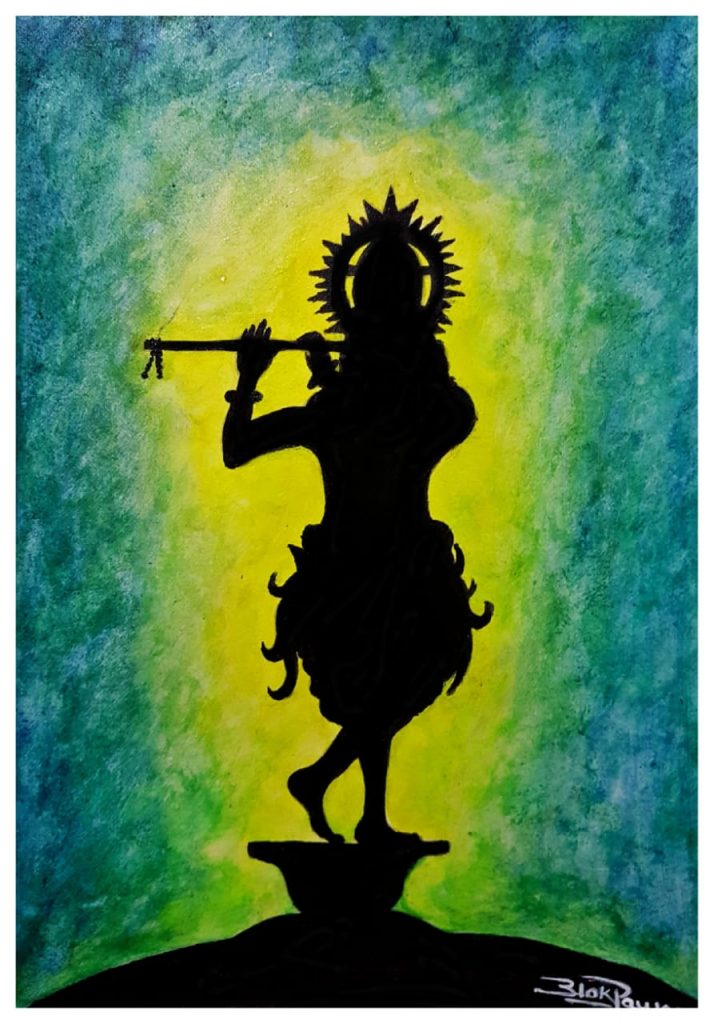So yesterday was a good day – filled with fasting , celebration, food and finery. Sri Krishna took centerstage, both in our mandir at home and in our minds, for the full day.
Today we can feel the after-effects – the jasmine has nearly withered, the sweets will soon be over, and the toddler is back to eating more food and less maakhan (butter).
What if everyday was a celebration like yesterday? Sounds far fetched, and it probably is.
If I count an average life expectancy, I may have around 1,500 Sundays left. That multiplies by 7 if I take life very differently though. Not a tough choice, but very very tough to implement.
Incidentally, this is what “Happy Gurus” speak about all the time – being in a constant state of celebration. Easier said than done, but not impossible.
Maybe we can start by remembering divinity more often?
या निशा सर्वभूतानां तस्यां जागर्ति संयमी |
यस्यां जाग्रति भूतानि सा निशा पश्यतो मुने: || 69||
yā niśhā sarva-bhūtānāṁ tasyāṁ jāgarti sanyamī
yasyāṁ jāgrati bhūtāni sā niśhā paśhyato muneḥ
What all beings consider as day is the night of ignorance for the wise, and what all creatures see as night is the day for the introspective yogi.
Bhagavad Gita 2.69
Have you ever searched for God when you were happy?
Wait. First of all, do you believe in God? It’s better as a yes or no question, rather than asking you if you are an atheist or an agnostic, or a believer or any other flavor that is out there in today’s politically over-correct world.
In Sanātana Dharma, there is no concept of God, but translators struggle to explain that to their readers. Hence Vishnu is called God, Shiva is called God, Ganesha is also God. Gets confusing when you have so many isn’t it?
Anyways, that is not the question for today. The question is – When does God appear?
Mostly in troubled times. Our troubled times. That is when we remember him anyway, and we hope he returns the favor by manifesting himself and getting us out of the muck (yet) again. “Save us!” is the code to access him, we think.
So the divine powers, the force of all existence, the all-powerful celestial being….has to come to your rescue just because you didn’t study for your exams or screwed up a job interview.
No! You protest. I remember God in times of genuine need – a life and death situation. Well, even then, you still remember him in times of need isn’t it?
When is the last time you genuinely remembered him other than the customary “Thank God” that you uttered when something went well?
Maybe not many times. Because, remembering God is an exercise in itself.
Sri Krishna was born at midnight. Not in the day, not in the evening, not at dawn. Midnight. The darkest part of the night. Those who know the story will recall that Kansa and the prison guards were put to deep slumber that night, so that Krishna could escape.
You are active during the day, and passive during the night. This is because of your sensory perceptions. You take in inputs all through the day, and this play on the senses is what constitutes Maya – the illusion of existence. In the night, your senses are at rest. Your ego, that is in full flow in the daytime, is lost at night – because you are unaware. You are empty. You are asleep.
Sri Krishna manifests at your midnight – when your ego does not exist, and when your senses are at rest and when you are truly calm in the mind and body.
When you close your eyes in meditation, rest your senses and focus on your inner being, when your body, mind and soul are aligned and you truly call him with all your bhakti – that is nyāsa or true invocation. In a sense, you too become an avatāra – albeit a very very minor one – but an avatāra nevertheless. A part of the divine, of the universal consciousness.
When you meditate this way, Sri Krishna manifests for you. And Janmashtami is a day that can be conducive for such a manifestation.
If you do not call him truly, he cannot come and help you. If you do call him with all your heart, he cannot BUT come and help you.
Here is to a new tomorrow!

